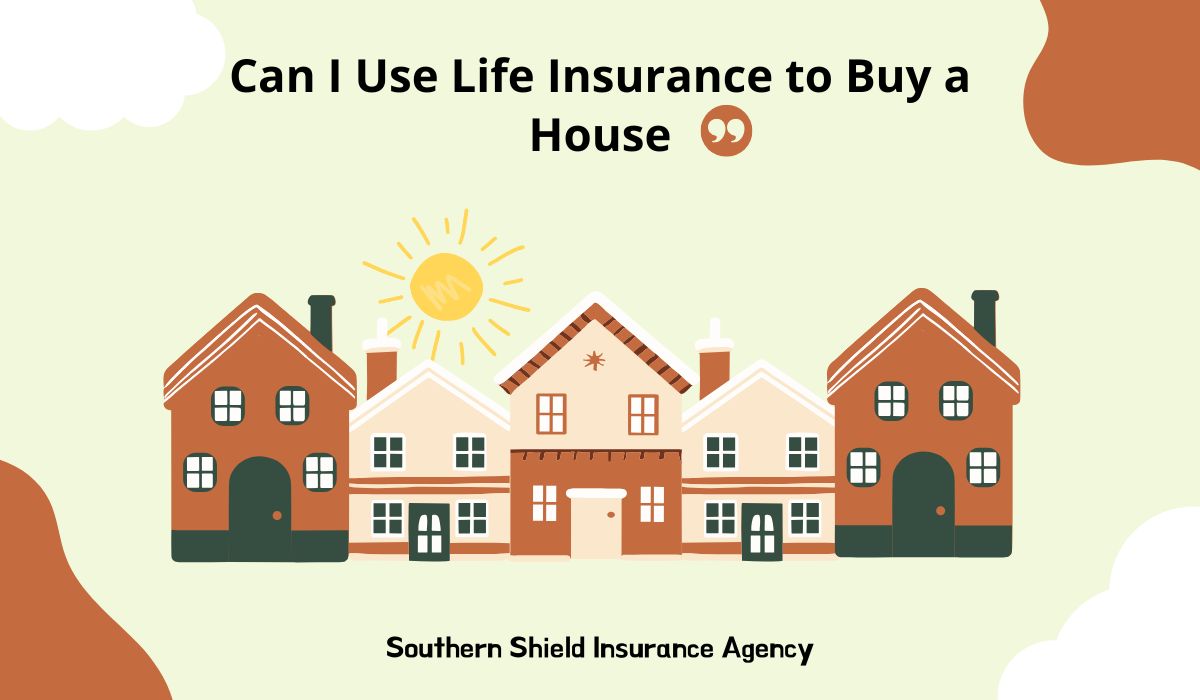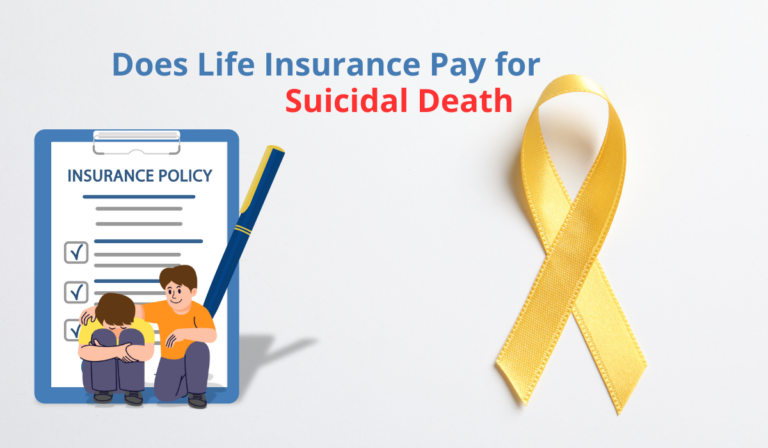Yes, you can use life insurance to buy a house. This process involves leveraging the cash value of a permanent life insurance policy.
Life insurance is often seen as a safety net for families after a loved one passes away. But did you know it can be a financial tool while you are still alive? If you have a permanent life insurance policy, you might be able to tap into its cash value.
This cash value can be used in various ways, including purchasing a home. Understanding how this works can help you make informed decisions about your financial future. Let’s explore how you can use your life insurance policy to buy a house and what you need to consider.
Types Of Life Insurance
Life insurance comes in many forms. The type you choose can affect your ability to use it for buying a house. Here, we’ll explore two main types of life insurance: Term Life Insurance and Whole Life Insurance.
Term Life Insurance
Term life insurance offers coverage for a specific period, usually 10, 20, or 30 years. It’s often more affordable than whole life insurance. However, it does not build cash value over time. This means you can’t borrow against it to buy a house. Term life insurance is ideal if you need coverage for a set period, like until your mortgage is paid off.
Whole Life Insurance
Whole life insurance provides lifelong coverage. It also has a savings component known as cash value. This cash value grows over time and can be borrowed against. You can use this cash value to help buy a house. Whole life insurance is typically more expensive but offers more benefits. It’s a good option if you want lifelong coverage and a savings component.
| Type | Coverage Duration | Cash Value | Use for Buying House |
| Term Life Insurance | 10, 20, or 30 years | No | No |
| Whole Life Insurance | Lifelong | Yes | Yes |
Understanding these types of life insurance helps you decide the best option for your needs. Always consider your long-term goals and financial situation when choosing a policy.

Cash Value Component
The cash value component of a life insurance policy can be a valuable asset. It is the portion of your policy that grows over time. This component can be tapped into for various purposes. One of these purposes might be to buy a house. Understanding how the cash value works is crucial. Let’s dive into its details.
Definition Of Cash Value
The cash value is a part of permanent life insurance policies. It is separate from the death benefit. The death benefit is what your beneficiaries receive when you pass away. The cash value is the money that accumulates over time within your policy. You can access this money while you’re alive. It can be borrowed against or withdrawn.
Growth Of Cash Value
The cash value grows based on the premiums you pay. Part of your premium goes towards the cash value. The growth rate varies by policy type. Some policies offer a fixed growth rate. Others might have a variable rate based on investments.
The growth can be tax-deferred. This means you don’t pay taxes on the gains until you withdraw the money. Over time, the cash value can build up significantly. This growth can be a helpful financial resource.
Here’s a simple table to illustrate how the cash value might grow over time:
| Year | Premium Paid | Cash Value |
| 1 | $1,200 | $200 |
| 5 | $6,000 | $1,500 |
| 10 | $12,000 | $4,000 |
You can see that the cash value grows steadily. This growth can be used for various financial goals, including buying a house.
Accessing the cash value might involve borrowing against it. The loan will need to be repaid. If not, it can reduce the death benefit. Alternatively, you can withdraw the cash value directly. This might impact your policy’s value and future benefits.
Understanding the cash value component can help you make informed financial decisions. Whether it’s for buying a house or other needs, it’s a valuable asset within your life insurance policy.
Read More: Is Life Insurance Worth It in 2025?
Using Cash Value For A Down Payment
Using the cash value of your life insurance policy for a down payment can be a smart move. It can help you achieve your dream of homeownership. There are two main ways to use the cash value: borrowing against it and withdrawing it.
Borrowing Against Cash Value
Borrowing against the cash value is a popular option. You can take out a loan from your life insurance policy. The interest rates are usually lower than personal loans or credit cards. You do not need to go through a credit check. This makes it easier to get the funds you need.
Repay the loan on time to avoid issues. If you do not, it could affect your policy’s death benefit. Make sure to understand the terms of the loan. This ensures you make the best decision for your financial situation.
Withdrawing Cash Value
Withdrawing cash value is another method to get funds for a down payment. You can take money directly from your policy. This does not require repayment. But remember, withdrawing cash value reduces your policy’s death benefit.
This option might have tax implications. Always check with a financial advisor before making withdrawals. This way, you can avoid any unexpected tax bills. Understand the impact on your policy and future benefits.
Pros And Cons
Using life insurance to buy a house is an option many people consider. Understanding the pros and cons helps you make an informed decision. This section covers the advantages and potential drawbacks of this financial strategy.
Advantages Of Using Life Insurance
Using life insurance can offer several benefits when buying a house. Here are some key advantages:
- Tax-Free Payouts: Life insurance benefits are usually tax-free, which can provide significant savings.
- Access to Cash Value: Policies like whole life insurance build cash value. This can be borrowed against to fund a house purchase.
- Flexible Repayment: Loans against your policy often offer flexible repayment terms.
- Peace of Mind: Knowing that your family is covered can provide emotional comfort.
Potential Drawbacks
While there are benefits, there are also some potential drawbacks to consider:
- Interest Rates: Loans against your policy can have higher interest rates than traditional mortgages.
- Reduced Death Benefit: Borrowing against your policy reduces the death benefit available to your beneficiaries.
- Policy Lapse Risk: Failing to repay the loan can cause your policy to lapse, resulting in loss of coverage.
- Complex Terms: Understanding the terms and conditions can be complex. It is crucial to read the fine print.
Eligibility And Requirements
Using life insurance to buy a house is possible. But, there are specific eligibility and requirements. These factors will determine if you qualify and how much you can borrow. Understanding these criteria is essential to make an informed decision.
Policy Age Requirements
Your life insurance policy must be a certain age before you can borrow against it. Typically, policies need to be in force for at least 2-3 years. This period ensures the policy has built sufficient cash value. Without meeting this requirement, you may not be eligible.
| Policy Type | Minimum Age Requirement |
| Whole Life Insurance | 2 Years |
| Universal Life Insurance | 3 Years |
Loan Repayment Terms
Borrowing against your life insurance comes with repayment terms. It’s crucial to understand these terms to avoid complications. The repayment terms can vary based on the insurance company and policy type.
- Interest Rates: Interest is charged on the loan amount. Rates may be fixed or variable.
- Repayment Period: The period to repay the loan can vary. Some policies offer flexible repayment options.
- Impact on Death Benefit: Any unpaid loan amount reduces the death benefit.
Ensure you review these terms carefully. Knowing the details helps you make the best decision for your financial situation.
Alternative Financing Options
Exploring alternative financing options can help you buy a house without a traditional mortgage. There are various routes you can take to secure the necessary funds. Let’s delve into some popular alternatives and how they might benefit you.
Traditional Mortgage Loans
Traditional mortgage loans are the most common way to finance a home. Banks and lenders offer these loans with fixed or adjustable interest rates. To qualify, you need a good credit score and a steady income. A down payment is also required. The amount varies, but it’s usually around 20% of the home’s price.
Traditional mortgages come with clear terms and predictable monthly payments. They also offer long repayment periods, typically 15 to 30 years. This makes them a stable choice for many homebuyers.
Home Equity Lines Of Credit
A Home Equity Line of Credit (HELOC) allows you to borrow against your home’s equity. This option is available if you already own a home with substantial equity. The lender provides a credit line based on the equity amount. You can draw funds as needed, similar to using a credit card.
HELOCs offer flexibility in how you use the funds. They usually have lower interest rates compared to personal loans. Repayment terms are also flexible, often split into draw and repayment periods. This can make managing your finances easier while purchasing a new home.
Frequently Asked Questions
Can Life Insurance Help Buy A House?
Yes, you can use a life insurance policy to buy a house.
How Can Life Insurance Funds Be Used For A Home Purchase?
You can borrow from the policy’s cash value or use a payout.
What Is Cash Value In Life Insurance?
Cash value is the savings part of a whole life insurance policy.
Is It Smart To Use Life Insurance For A House?
It can be, but it depends on your financial situation.
Can Term Life Insurance Be Used To Buy A House?
No, term life insurance has no cash value to borrow from.
What Are The Risks Of Using Life Insurance For A Home?
You might reduce your policy’s death benefit or face tax issues.
Do I Need To Repay Borrowed Cash Value?
Yes, you need to repay it with interest or it reduces the death benefit.
Can A Life Insurance Payout Be Used For A Mortgage?
Yes, beneficiaries can use the payout to pay off a mortgage.
Conclusion
Using life insurance to buy a house is possible. It offers unique benefits. You can access funds through loans or withdrawals. Always understand the terms first. Consult a financial advisor. They provide guidance. This helps you make informed decisions. Your home purchase journey can be smoother.
So, explore your life insurance options. Make the best choice for your financial future.




